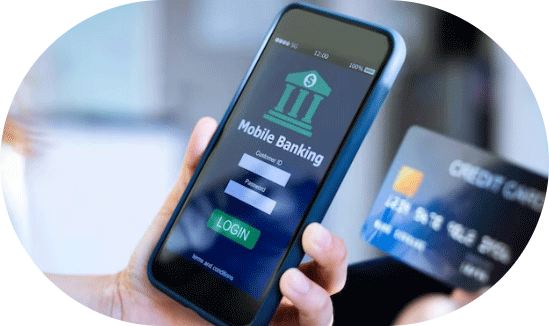Digital payments, also known as electronic payments or e-payments, are financial transactions conducted via digital or online platforms, eliminating the need for physical cash. In these transactions, value is transferred from one payment account to another, facilitated by digital devices such as mobile phones, computers, or payment cards (credit, debit, or prepaid). These payment methods offer convenience, security, and efficiency, allowing individuals and businesses to make purchases, transfer funds, pay bills, and conduct various financial transactions electronically. They have become increasingly popular in today's interconnected world, simplifying financial processes and reducing the reliance on traditional paper-based methods.
Data Bridge Market Research analyses that the global digital payment market, which was USD 94.34 billion in 2022, is expected to reach USD 317.27 billion by 2030, at a CAGR of 20.60% during the forecast period 2023 to 2030.

User Initiation: The process begins when a user decides to make a payment, whether it's for online shopping, bill payments, or transferring money to someone else
Payment Information Entry: Users provide essential payment details, including the recipient's information, payment amount, and sometimes a billing address for verification
Payment Method Selection: Users choose their preferred payment method, such as credit cards, debit cards, mobile wallets, bank transfers, or digital currencies such as Bitcoin
Encryption: To ensure security, payment information is encrypted, converting it into a coded format that prevents unauthorized access during transmission
Authorization: The payment request goes to the user's bank for authorization, where the bank verifies the transaction's legitimacy and checks if the user has sufficient funds
Payment Gateway: For online transactions, a payment gateway acts as an intermediary, securely processing the transaction and facilitating communication between the user's bank and the merchant
Authorization Response: The user's bank responds with an approval or decline. If approved, the transaction proceeds
Payment Confirmation: The user receives confirmation of the completed transaction, often in the form of an order confirmation page or an email receipt for online purchases
Settlement: Behind the scenes, funds are transferred from the user's bank to the merchant's account to fulfill the transaction
Notification: Both the user and the merchant receive notifications, serving as a transaction record Record
Keeping: Financial institutions and users maintain transaction records for reference, accounting, and security purposes
Security Measures: Multiple security measures, including encryption and fraud detection, protect against unauthorized access and fraudulent activities
Accessibility: Digital payments can be made via various devices, offering convenience and flexibility
International Transactions: Many digital payment methods support cross-border transactions, enabling global payments
Instantaneous Transactions: Real-time or near-instantaneous transaction processing reduces payment delivery times
Costs: Users should be aware of potential fees associated with specific payment methods or international transactions
Receipts and Statements: Users receive receipts and access digital statements detailing transaction history for accounting and reconciliation

Technological innovations such as secure payment gateways, encryption, and biometric authentication have strengthened trust in digital payment security. The emergence of near-field communication (NFC) technology has made contactless payments via smartphones and wearables more accessible. This tech surge is expected to drive significant market growth from 2023 to 2030.

Governments and regulatory bodies are actively promoting digital payments to enhance financial inclusion. Measures such as demonetization, digital wallet promotion, and the establishment of regulatory frameworks for digital payments have accelerated their adoption. These government-driven initiatives play a crucial role in creating diverse growth opportunities within the digital payment market.

North America, particularly the U.S., leads the digital payment market due to the widespread adoption of mobile wallets such as Apple Pay and Google Pay, alongside extensive debit and credit card usage. The presence of established payment processors, financial institutions, and robust financial infrastructure solidifies North America's position.
The Asia-Pacific region, driven by China, India, and Southeast Asian nations, is experiencing substantial growth. Mobile payment platforms such as Alipay and WeChat Pay, combined with high smartphone penetration and government initiatives for financial inclusion, contribute to the region's dominance in digital payments.
In conclusion, the digital payment market is on an upward trajectory, driven by the surge in cryptocurrencies, the widespread adoption of contactless payments, and the proliferation of mobile wallet solutions. This industry's dynamism is closely tied to technological advancements, continuously reshaping the digital payments landscape. Both businesses and consumers must remain flexible and well-informed to effectively engage with this evolving sector. It is this adaptability that will ensure success in navigating the ever-changing and transformative world of digital finance.

To know more about the global digital payment market, visit: https://www.databridgemarketresearch.com/reports/global-digital-payment-market
Data Bridge Market Research utilizes advanced statistical primary research tools to expedite the generation of reliable solutions. The company is dedicated to providing clients with decisively sound and strategically significant actionable insights.
Contact us Now: - https://www.databridgemarketresearch.com/contact